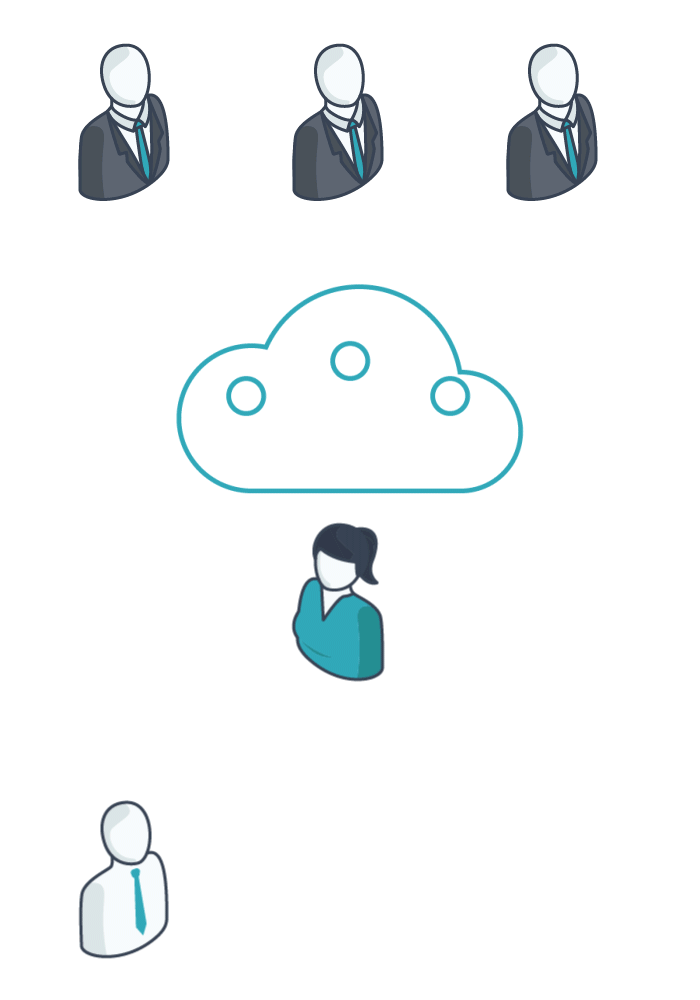Ten Ways in Which People Benefit from Data Portability
.... and how MyTerms will help fix the currently broken approaches to data portability.
I do write from time to time on the very broken thing that is data portability. My last detailed iterations were back here , then here, then here; all in May 25 (it’s a big year for data portability clearly…). It’s time for another brain dump on the subject; mainly to help me organise thoughts before a full morning session on the subject tomorrow at the MyData conference.
The new thinking on the matter is that we can and should now clearly articulate the benefits that people can access when their data is more accessible to them or their delegates - because it is portable, i.e. accessible to them in a useful format.
Here’s my ‘starter for ten’ list of benefit areas; there will be more.
I Wish to Port my Widget Contract and Use Data for My Own Analysis and Optimisation
I Wish to Port my Widget Contract and Use Data for Comparison
I Wish to Port my Widget Contract and Use Data in Order to Switch Provider
I Wish to Port my Widget Contract and Use Data to a Market Research organisation who are Undertaking Relevant Analysis that I Wish to Support
I Wish to Port my Widget Contract and Use Data to an Entity Looking to Aggregate Demand for Group Buying
I Wish to Port my Widget Contract and Use Data to an Entity Acting on my Behalf to Register a Case (Customer Service) I May Have
I Wish to Port my Widget Contract and Use Data to another Family/ Household Member who Wants or Needs Access
I Wish to Port my Widget Contract and Use Data to someone Taking over the Property
I Wish to Port my Widget Contract and Use Data to my Power of Attorney
I Wish to Port my Widget Contract and Use Data to my Executor
‘Widget’ could refer to a wide range of products, services or agreements including Home Energy, Home Broadband, Mobile Telephony and Broadband, Cloud Storage, Car Insurance, House Insurance, Life Assurance, Travel Insurance, Bank Account, Credit Card Account, Credit Score, Social Media Account, Rewards Programme, Pension, Investment Account, Employment Contract, Warranties, Playlists Viewing History and no doubt many more.
That all sounds good I hear you say….?
Yes, the promise of data portability is great; however the reality is very different. Despite us all having the general right to data portability under GDPR and similar - just try enacting those rights….
There are no standardised means to submit a data portability request. No standard ways to describe the data you want to port. No standard means for you to say where you’d like it to move to. No standard means to express the technical formats you’d like your data to be shared in. No recognised ability for you to delegate your requests to an agent acting on your behalf. And of course the killer issue…., on top of all of the above, you probably won’t get the answer you want to your request anyway. To illustrate…., I, because i’m in this line of activity, have submitted two data portability requests of late. One was to my car insurer, the other to my home energy provider - both large, UK service providers with plenty of resources allocated to privacy and data protection. Both responses came back entitled ‘Your Subject Access Request blah blah blah…; and here’s your csv file….’. In both cases I responded and made it clear that my submission was a data portability request; made no difference whatsoever. All correspondence at all points referred to ‘your subject access request’. Clearly, industry does not want to be dealing with data portability requests….
Of course, that is no great surprise; in UK we have been trying to free up data from supplier silos since the old MiData project back in 2013. With the single, partial success of Open Banking, there is clearly a huge gap betweem data portability theory, and it’s reality.
So why am I telling you all of this? Quite simply because those missing pieces of the jigsaw are about to show up - via MyTerms/ IEEE7012 draft global standard.
Whilst there is a lot more to MyTerms than data portability, there is a whole sub-set of the standard and specifically 5 of the 13 standardised data sharing agreements (aka privacy policies) that overtly fill those gaps above. Those agreements that require data portability all include:
Standards based ability for you to delegate your requests to an agent acting on your behalf:
A standardised means to submit a data portability request
Standard ways to describe the data you want to port. Standard means for you to say where you’d like it to move to
Standard means to express the technical formats you’d like your data to be shared in
That model will clearly take time to bed in, but I would contend that when in place those benefits that come from data portability will be much more tangible.
This article was also published on SubStack by Iain Henderson.


